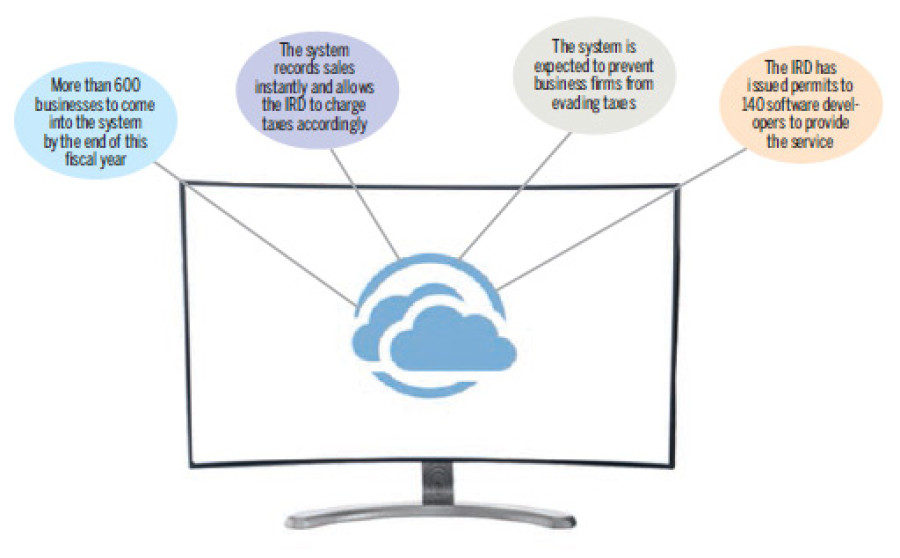Money
600 firms to be linked to central billing system
Full-fledged implementation of the central billing monitoring system, which was launched as a pilot project on November 17, is scheduled to start by the end of this fiscal year, said the Inland Revenue Department (IRD).
Full-fledged implementation of the central billing monitoring system, which was launched as a pilot project on November 17, is scheduled to start by the end of this fiscal year, said the Inland Revenue Department (IRD).
The system will link taxpayers using a computerised billing system to the IRD’s computers allowing it to keep track of their transactions in real time. The IRD said it planned to connect more than 600 businesses to its system by the end of this fiscal year.
The central billing monitoring system records sales instantly and allows the IRD to charge taxes accordingly. The system is expected to prevent business firms from evading taxes.
IRD Deputy Director General Yagya Prasad Dhungel said the department had been working to amend related regulations. “We will soon issue a directive providing a reasonable timeframe for taxpayers to upgrade their software,” Dhungel said.
The system is currently being implemented at Sipradi Trading. According to the department, it took over a month to upgrade the system at Sipradi Trading and to make it compatible with the IRD’s software.
Dhungel said most large taxpayers had been using a computerised billing system approved by the department. Almost all well-known department stores, authorised dealers of automobiles, large factories and corporate houses are using computerised billing systems.
After the system becomes mandatory, business firms will need to install software that will connect their billing system to the IRD’s computers. Software developers licensed by the IRD will install a device and add a specific field in their computer systems. The IRD has issued permits to 140 software developers to provide the service.
Dhungel said a number of business firms have been using common software approved by the department. “The department has notified these firms to initiate the process of customising their software to link up with the IRD’s system.”
In the second phase, the department plans to include other taxpayers who are using a manual billing system, Dhungel said.
As per the IRD, these taxpayers could be required to upgrade their point of sale terminals, install new software which will be provided by the department or add a separate field in the Integrated Tax System.
“The IRD is yet to decide on the modality of bringing these taxpayers within the central billing monitoring system,” Dhungel said.
According to the IRD, a total of 1.6 million taxpayers are registered with the department. Among them, 184,000 are registered for VAT. It said 900,000 business firms fall below the VAT threshold while more than 600,000 individual taxpayers have received permanent account numbers.
The IRD said the system was being implemented to prevent business firms from evading tax. During its inspection of 3,905 firms carried out from September to October, it booked 615 firms for not paying taxes. It also collected Rs3.84 million in fines.
A majority of the businesses which were fined were found not issuing sales receipts to their customers or selling goods not stamped with excise duty stickers. Using duplicate excise duty stickers, selling bootleg liquor or doing business without maintaining account books in a bid to evade tax are rampant in the domestic market, the IRD said.




 14.24°C Kathmandu
14.24°C Kathmandu














